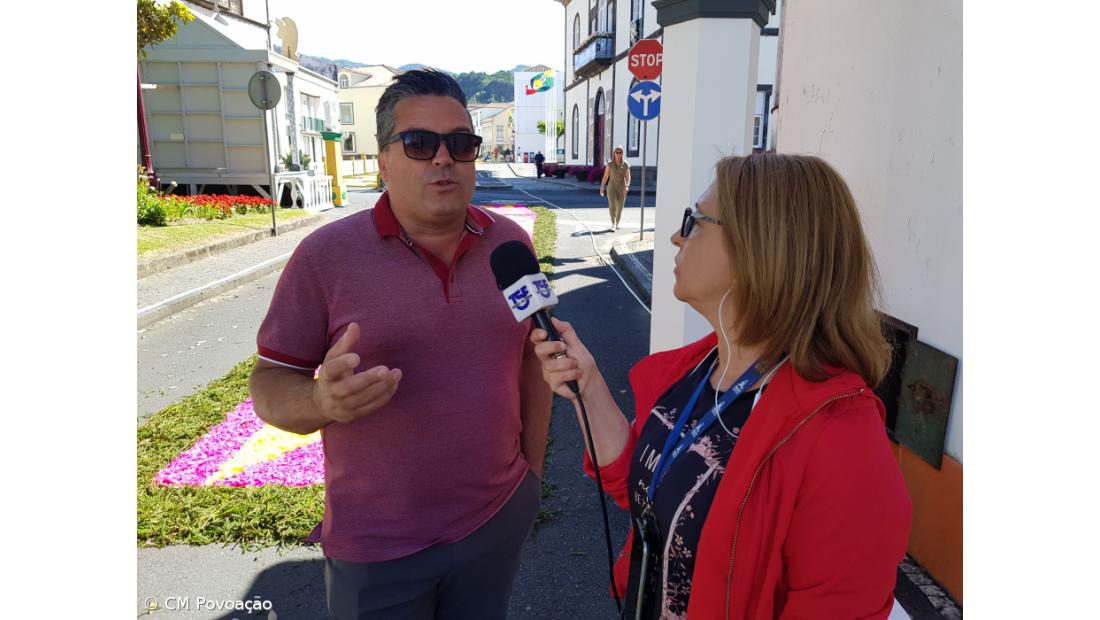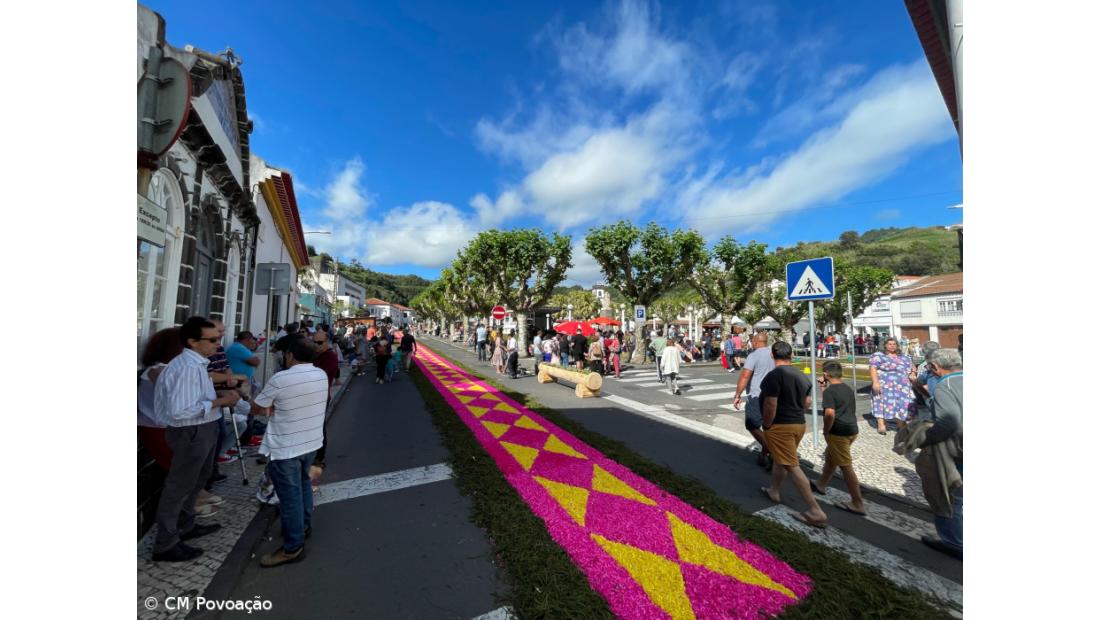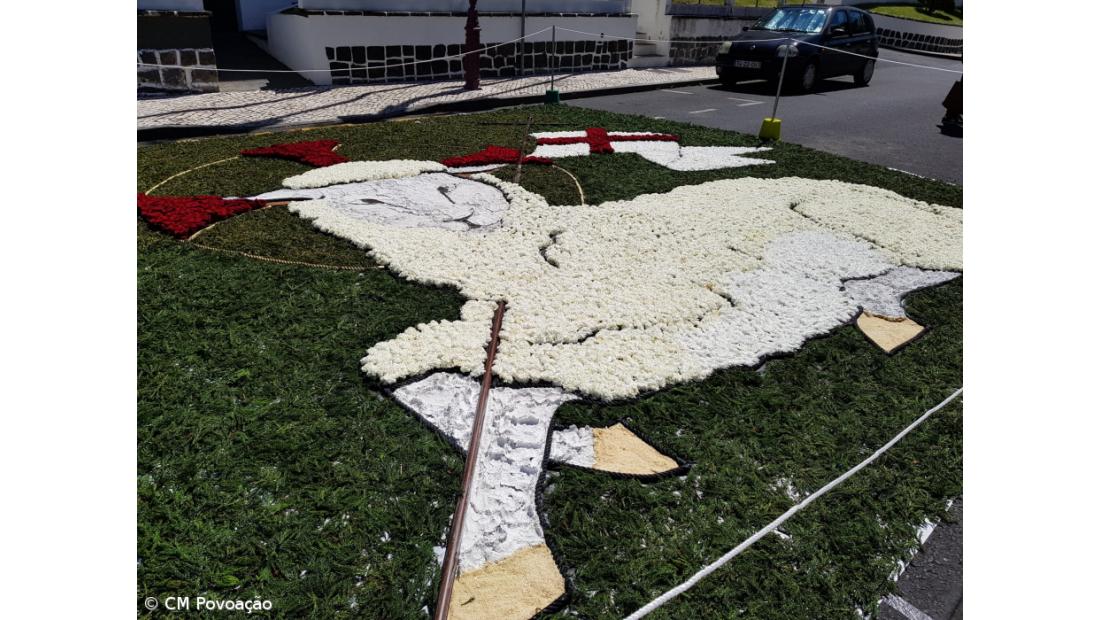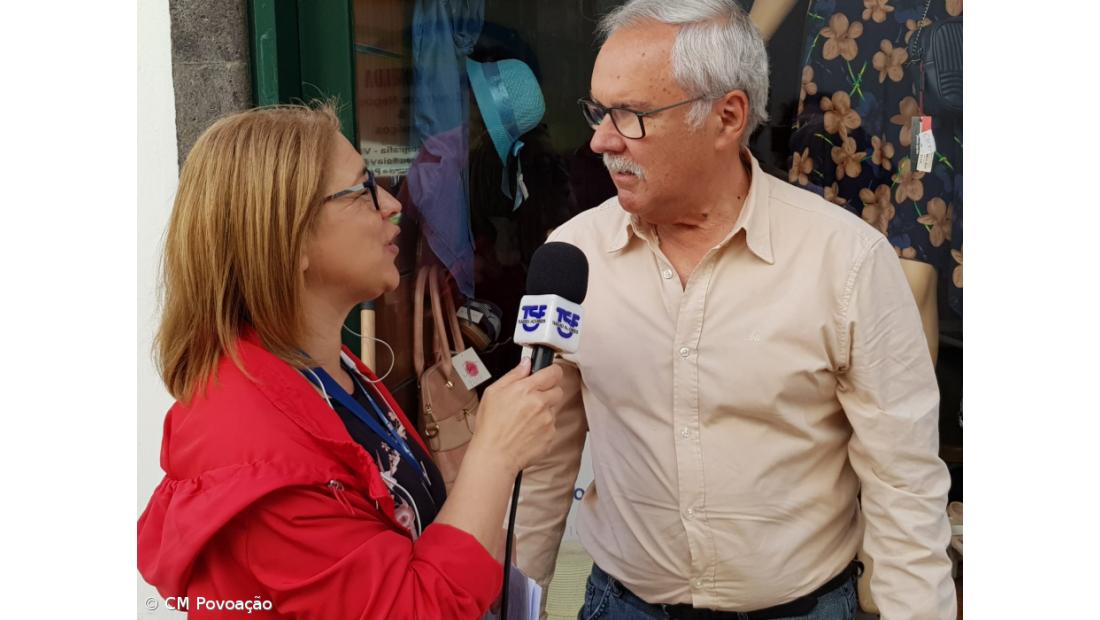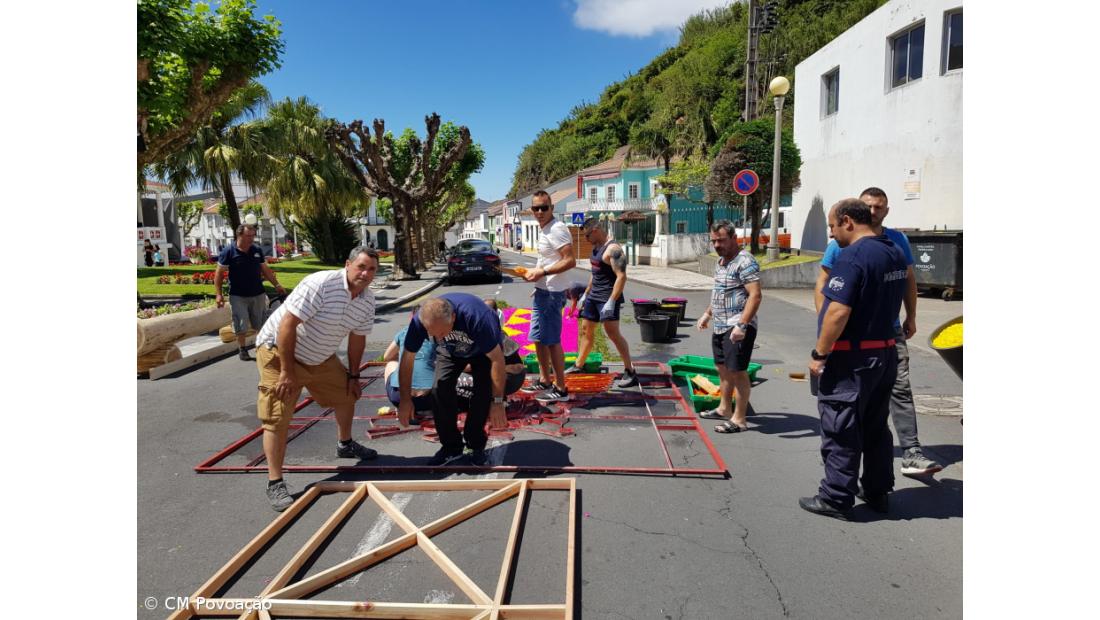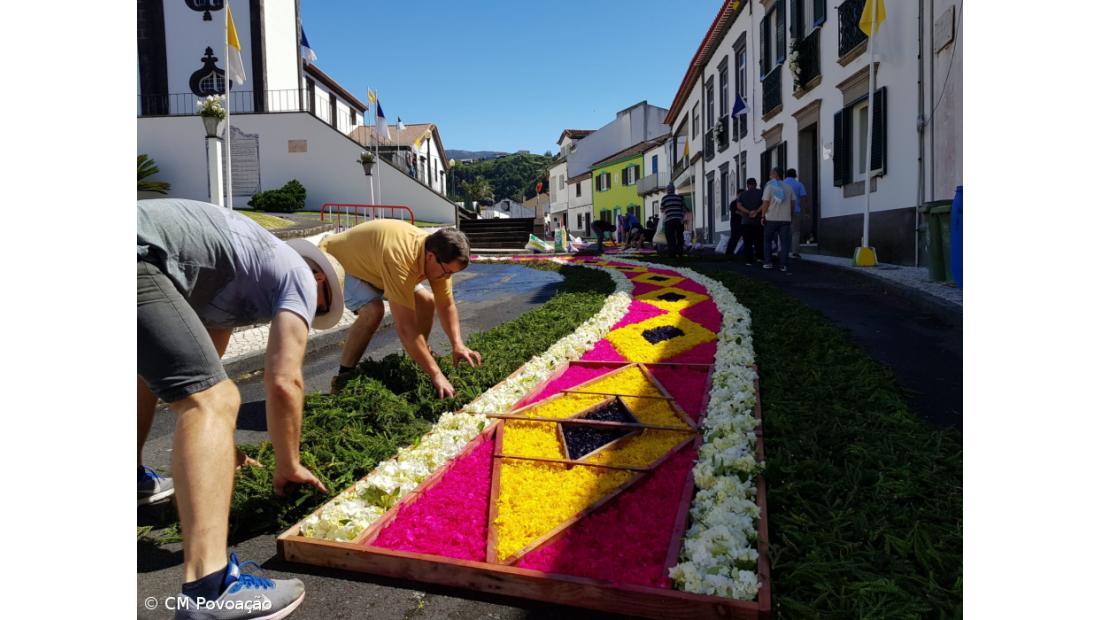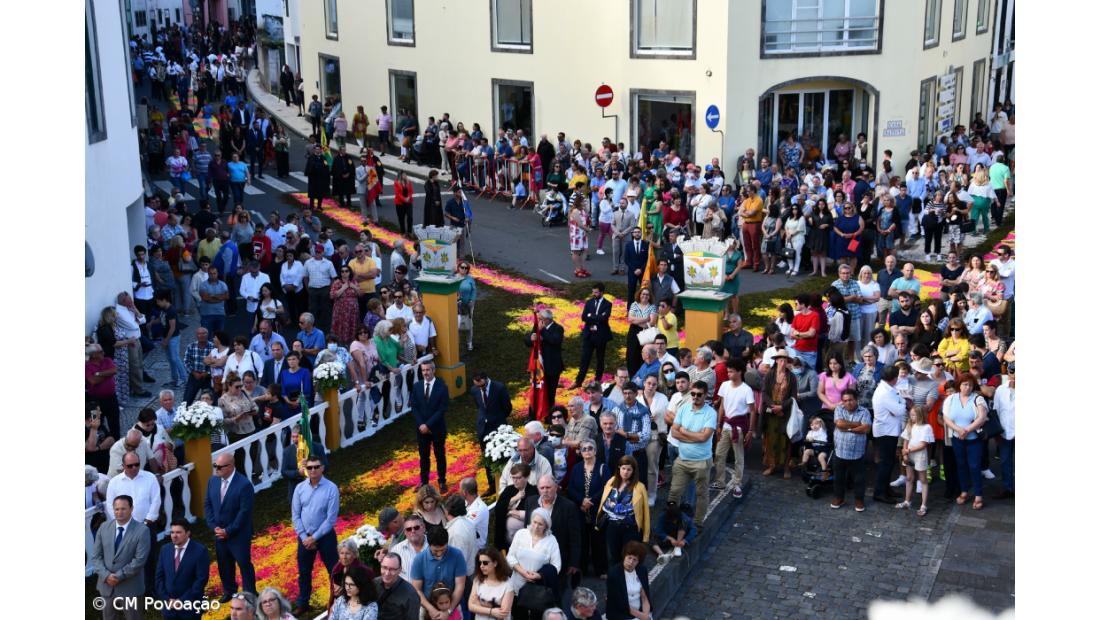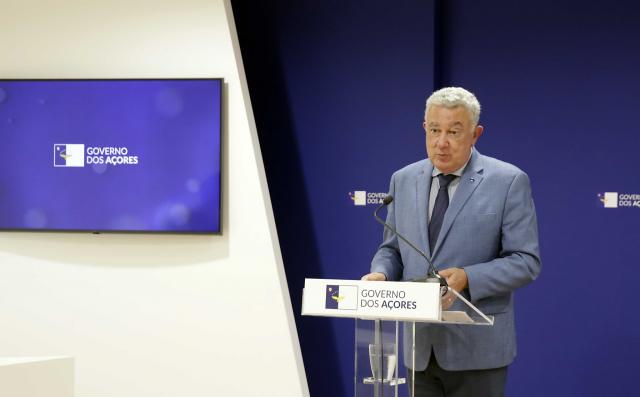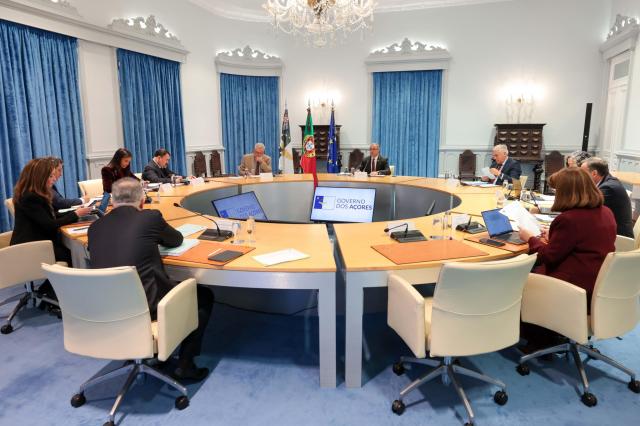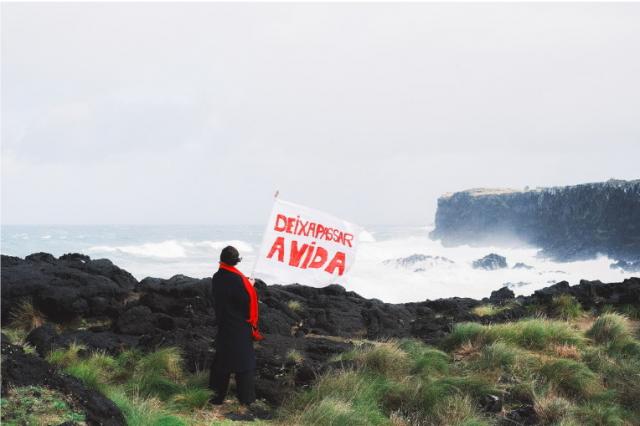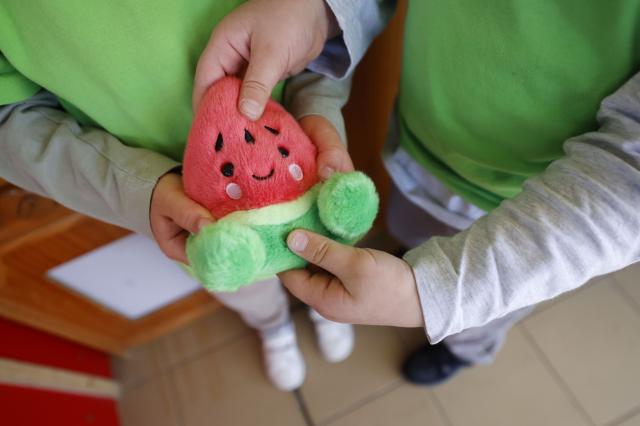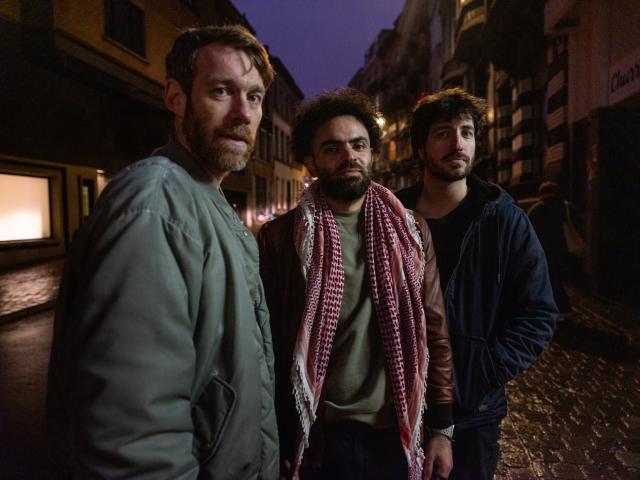“Whenever I see the procession, I cry”. The confession of João Amaral, a resident of Povoação, to the microphones of Azores TSF, mirrors the emotion and faith that overflowed the village with the procession in honor of the Body and Blood of Christ, a religious festivity held since 1905, by the hand of Father Ernesto Jacinto Raposo. Hundreds of people took advantage of the blue sky and summer sun to marvel at the five floral carpets that decorated the village, one of the festivities' highlights.
Returning to its original form after two years of interruption, due to the pandemic, the festivity was experienced by the people of Povoação with intense fervor, as noted by the Parish Council President, Nilson Vieira.
"After the limitations of the pandemic, people were really looking forward to this day. I followed the preparations with Professor Alberto Linhares and it is commendable the passionate way in which people devote themselves to this. The work lasted until 4 am", he said, referring to the preparation of floral carpets.
As the festivities' main attraction, the carpets that paint the municipality's main streets and are said to be “the most beautiful of the Azores”, result from long weeks of work, done by more than a hundred people daily, such as João Amaral, for example.
“Me and three other friends started painting the chips on June 10, enjoying the holiday. We prepared the plants, the chips, the molds. We woke before 7: 00 a.m., so that everything is ready before the procession. ”
This tradition "is essential", says Amaral, who does not leave his credits for others when it comes to praising the work of the people. “Modesty aside, we are the best on the island at making carpets for the churches. Some even came here to copy, but we were not offended, because this is all for the church, for our Lord”.
Dona Selézia, as she is known, is also not offended. In charge of arranging the flowers in front of the City Hall, she talks about the festivities that leave her with no strength but with a full heart.
“I've been working on the carpets for five years. We are a team and we count on young people too, aged 17, 18. That is great. I love the environment, even if the whole preparation is very tiring - sometimes it even hurts to get up, but I am always with a full heart ”.
The death of the only florist in the village meant that the flowers had to come from Ribeira Grande. All in all, according to Dona Selézia, there are almost 15,000 plants enriching the five streets where there are carpets. “It's a lot of flowers: this white dove, for example, has about 2,800 roses, while that heart has 1,800. It's a wonderful beauty. Watching people walk past the carpets and praise them is like nothing else. Even the tourists turn to us and say ‘Good, good’. It is a great joy ”.
The commitment with which everyone devotes themselves to the carpets is, in itself, also an art. The wish that their carpet is the most beautiful moves them, in a healthy competition for the best “work of art”, explains the mayor.
"It is a very healthy competition between streets: each one wants their street to be more beautiful than the other. It is an extra motivation and brings excellent results. It is with this kind of energy that we prepare for this day”, said Pedro Melo.
The mayor reveals the role and importance these carpets play in the life of the village and the municipality: on the one hand, with the procession passing through the heart of the village, the carpets give a vital spirit to the local economy; on the other hand, they attract people to Povoação, even those who for more than 35 years have not set foot in their homeland.
“20, 30 years ago, the festivities counted on many of our emigrants. That was lost. But for the past five years, we have been welcoming more emigrants. Just while I was helping the group with the preparations, at 2 am, I spoke to an emigrant who had not been to the festivities for 35 years and who said he came back for the carpets."
For Nilson Vieira, this is greatest the days of the festivities. After the limitations imposed by the pandemic, the President of the Parish Council admits that “people were looking forward to this moment”.
The presence of hundreds of people, including locals, people from other municipalities and tourists, national and foreign, was viewed with great satisfaction by the mayor, who considered the festivities an opportunity to make the potential of the village and the municipality known, as well as to allow the local businesses to "breathe a little better".
"Companies have gone through many difficulties, so we have to take advantage of this moment, grasp the positive times and help local commerce and the companies of Povoação. I hope you will visit us, have lunch and dinner here, eat our sweets and enjoy our festivities”.
Festivities that unite the entire population, from the oldest to the youngest, as Pedro Melo explains. This, for the mayor, is a guarantee “that we will be able to maintain traditions. Young people are motivated by the energy of their elders and the people who visit us. I can only be satisfied, as a local and a mayor”.
In addition to the religious part, the Festivities of the Body and Blood of Christ also have a profane part, the highest moment having been the performance of singer Adelaide Ferreira.
Floral carpets “are a means of evangelization”, says Father João Ponte
The procession is the highlight of the festivities in honor of the Body and Blood of Christ, but for Father João Ponte floral carpets also fulfill their religious role.
The parish priest stresses its evangelizing character.
“Carpets end up being a means of evangelization, because all carpets are allusive to Jesus' life. Some do not have the main focus on the Eucharist, others do. This happens, indirectly, because the main goal is for the carpets to be attractive to those who visit us, but for the Church they are a means to evangelize through the image", he said, expressing that the festivities "are an opportunity to meet each other".

